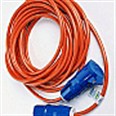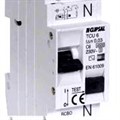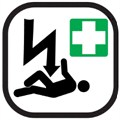The BSS working with the Electrical Safety First has tips and advice for boaters on how to act to avoid the risks of electric shock to themselves and persons around the boat (including swimmers), and risk of fire, from the boat's 230 V AC electrics.
 |
Electrical risks: -Why are boats different from buildings?Understanding how boats are different will help you know how to control the risks that electricity, particularly on boats, can create.
|
 |
Reacting immediately to early signs of electrical danger may safe your life and your boatUse all your senses to weigh-up continually if electrical safety is compromised. Act on what you find to keep you, your crew and persons around your boat safe.Never ignore danger signs, Read more detail on this link |
 |
Shore power cables and socketsTake great care of shore power or generator cables and sockets - people's lives could depend upon it.
|
 |
The system - wiring, plugs, sockets, fuses and circuit breakers
Here is more detail on the risks from the basic electrical system on this page |
 |
Using generators and other sources of 230 V power
|
 |
In the event of electric shockThis is the advice from the Electrical Safety First on its website about what to do if you believe someone has had, or is getting, an electric shock It may not be immediately clear that someone is getting an electric shock. Smoke won't be pouring from their ears! If you think someone is suffering from electric shock, approach with extreme caution. |
- The first step is to separate the person from the source of electricity as quickly as possibly. The best way of doing this is to turn off the supply, for example by unplugging the appliance or by turning the mains off at the fusebox (consumer unit).
- If this isn't possible, then try to remove the source of electricity from the person using a piece of insulating material, such as a length of wood.
- NEVER touch the person receiving the electric shock, or you could suffer one too.
- After removing the person from the source of electricity, if the person is unconscious call for an ambulance immediately.
- Where the person is conscious and seems well, it is still advisable to monitor their condition, as the effects of an electric shock may not be immediately obvious. In worst case conditions, an electric shock may lead to a condition known as electroporation, where cells within the body rupture, leading to tissue death. Additional problems might include deep-seated burns, muscle damage and broken bones.
- So in any event, seek medical attention for the affected person immediately!
